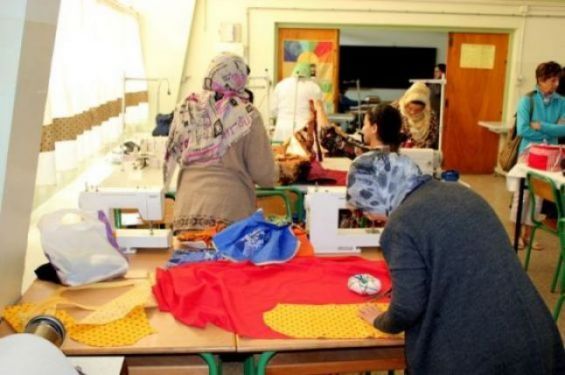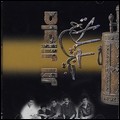To fight against the novel coronavirus outbreak, Morocco implemented a series of preventive measures that included the closure of several shops and small businesses.
Independent workers, artisans and people whose jobs heavily rely on supply and demand have seen their activities freeze and their incomes shrink amid the lockdown.
Mohamed, a Casablanca-based barber, is one of the many independent workers in Morocco who were forced to stay home as there is little to no demand for their services. «I work as a men’s hair dresser at a salon, but the owner had to close a week ago», Mohamed regretted.
«No clients means no income», said the barber who explained that he had «no proper salary as he had to split his income with his boss everyday».
Mohamed, like many other workers in his situation, «has no social security to guarantee a wage during this period». «I am an old man now and I got used to hardships», he lamented.
A difficult situation and limited resources
Lahcen, a plumber with most of his clients in Casablanca, is going through the same situation. He told Yabiladi, Monday, that he had to stop his activities and stay home as he «stopped receiving calls from clients».
«Clients are mostly scared of me now because of the virus, my job is about going to people’s houses and that is quite intimidating these days», he explained. Lahcen who works for himself said that «he has no social security».
With no income to make up for the situation, Lahcen is forced to make sacrifices to survive this difficult period. «I have to think twice before getting supplies or food because I know I have very limited resources», he regretted.
The same thing goes for Mona, a Taza-based broider who works for a tailor. «The owner had to close the shop’s doors on Wednesday», she explained.
«She took the sewing machine with her to complete past requests, but I only do handmade caftans (…) I brought the only order I had with me but I could not finish it because I am running out of thread and I can’t buy it anywhere», she told Yabiladi.
Although the shop Mona was working for has closed, she said that she is no longer solicited by clients. «No one is thinking of caftans these days, we have even brides calling to cancel their orders», she regretted. «Now, I have no daily income and I don’t know what to do, while I support my family and pay the rent», Mona concluded.
However, the decision to close the shop was necessary and binding on the owner of the store, who said in return, that she had no «other solution». «No clients means no income and that also means that I cannot pay the rent nor the people who work for me», Mona’s boss said.
While others are trying to adapt to the situation, Boujemaa, a porter in Taza, is only trying to survive as he has no money left. «I work as a porter in markets and train and coach stations but all these services have been halted», he argued.
With tears in his eyes, Boujemaa told Yabiladi he is «penniless» and does not know «how to survive during this crisis».
Little to no demand
Meanwhile, some of Casablanca’s taxi drivers have also halted their activities after Morocco declared a state of health emergency. «I have stopped working but I understand those who continue to do so because they have no choice», Mohamed Mouttaki, taxi driver, said.
«There are people who don't have enough to eat. They have monthly expenses to pay and for taxi drivers amenities are expensive», he argued. In addition to this, taxi drivers were forced to stop their activities because there are no people outside.
Mohamed El Harrak, member of the taxi syndicate (affiliated to the Democratic Confederation of Labor) voiced the same worries. «I stopped because the general interest took precedence. It is a state of emergency and our country does not have sufficient healthcare means to deal with this pandemic», he explained.
As for the royalties that taxi drivers must pay to the owners of their taxi licenses, he calls for solidarity, saying that these owners must also take into account this difficult situation. «It is normal for drivers to stop paying these royalties because they cannot afford it. Some already understand the situation», adds the man who also owns several licenses for operating taxis in Salé and Casablanca.
«I urge license owners not to demand payments from these revenues and to understand that the drivers are no longer working and have no income to pay. People have to show solidarity with each other», he added.
Abdelaziz is a driver of a goods transport vehicle who works with a large supermarket in the capital. He too has been unemployed for three days. «People are just buying food. Our activity of transporting household appliances has come to a standstill», he lamented. «A colleague of mine is also unemployed. We will wait for the next 14 days to see how the situation develops», he concluded.





 chargement...
chargement...













